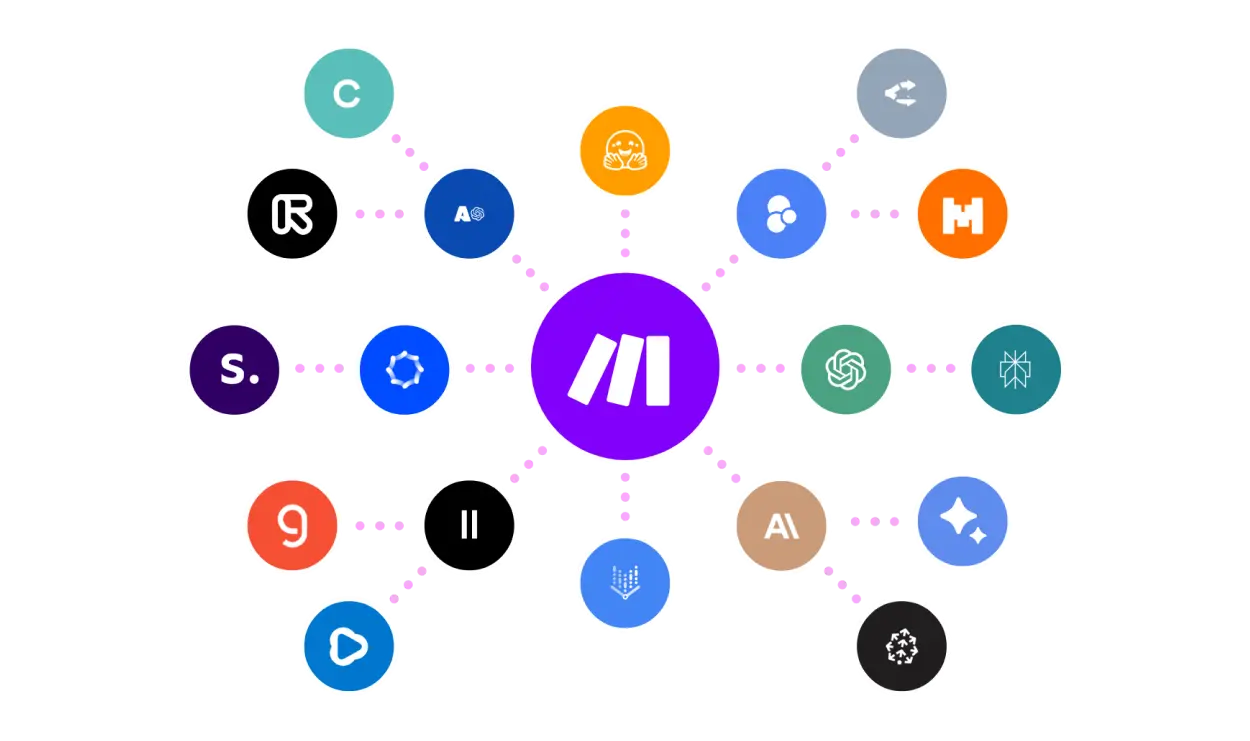What is Local Lead Generation?
Local lead generation is the process of attracting and converting potential customers who are located within a specific geographic area. This approach is essential for businesses that operate within a particular locale, such as restaurants, retail stores, service providers, and other small to medium-sized enterprises that depend on foot traffic or local clientele for their revenue.
Unlike broader lead generation strategies that aim to capture a wide audience, local lead generation is laser-focused on reaching individuals within a defined radius around your business. The goal is to connect with local consumers who are more likely to visit your store, use your services, or engage with your brand in person. This can be achieved through a variety of tactics, including local SEO, Google My Business optimization, community involvement, and localized advertising.
Why is Local Lead Generation Important?
Local lead generation is crucial because it aligns your marketing efforts with the specific needs and preferences of your community. By targeting local customers, you can achieve higher conversion rates since these leads are more likely to be interested in your offerings. Additionally, local lead generation helps businesses build strong relationships with nearby customers, fostering loyalty and repeat business.
For example, when a person searches for “plumber near me” or “best Italian restaurant in [city],” businesses that have optimized their local lead generation strategies are more likely to appear in the search results. This visibility is vital, especially for businesses that thrive on local patronage.
Furthermore, local lead generation enables businesses to stand out in a competitive market by emphasizing their connection to the community. Whether through sponsoring local events, collaborating with other local businesses, or engaging with customers on social media, businesses can create a strong local presence that resonates with their target audience.
Key Components of Local Lead Generation
To effectively generate leads at the local level, businesses need to focus on several key components:
- Local SEO: Optimizing your website for local search queries ensures that your business appears in search results when potential customers are looking for services or products in your area. This involves using location-based keywords, creating content relevant to your community, and ensuring your site is mobile-friendly.
- Google My Business (GMB): A well-maintained GMB profile is a cornerstone of local lead generation. It helps your business show up in Google Maps and local search results, providing essential information such as your address, phone number, business hours, and customer reviews. Regular updates and interactions on GMB can enhance your visibility and credibility.
- Online Reviews: Positive online reviews can significantly influence potential customers’ decisions. Encouraging satisfied customers to leave reviews on platforms like Google, Yelp, and Facebook can boost your reputation and attract more local leads.
- Localized Advertising: Using platforms like Facebook Ads and Google Ads to target local customers can drive traffic to your business. These platforms allow you to tailor your ads to specific demographics and geographic areas, ensuring that your marketing dollars are spent efficiently.
- Community Engagement: Participating in local events, supporting community initiatives, and forming partnerships with other local businesses can enhance your visibility and reputation within your area. This not only helps generate leads but also strengthens your connection to the community.
In conclusion, local lead generation is about understanding and leveraging your unique position within your community to attract and convert nearby customers. By focusing on local SEO, optimizing your GMB profile, and engaging with your community, you can build a steady stream of local leads that drive growth and success for your business.
The Importance of Local Lead Generation
Local lead generation is a critical component of any marketing strategy for businesses that serve a specific geographic area. It ensures that your business is visible to potential customers who are actively seeking the products or services you offer in their local community. This targeted approach not only drives relevant traffic to your business but also enhances your chances of converting those leads into loyal customers.
Relevance and Higher Conversion Rates
One of the most significant advantages of local lead generation is its relevance to the target audience. When you focus on attracting leads within your local area, you’re reaching people who are more likely to need and utilize your services. This increases the likelihood of converting those leads into paying customers. For instance, a local bakery that optimizes its marketing efforts to target nearby residents and businesses is more likely to see foot traffic and sales than if it were targeting a broader, less relevant audience.
Moreover, local customers tend to trust businesses that are part of their community. When a potential customer sees your business actively involved in local events or well-reviewed by other community members, they’re more likely to choose your services over a distant competitor. This trust and familiarity can lead to higher conversion rates and long-term customer loyalty.
Enhanced Visibility in Local Search Results
With the rise of mobile search and location-based queries, local lead generation has become increasingly important for businesses looking to enhance their online visibility. According to Google, nearly 46% of all searches have local intent, meaning people are often looking for businesses and services in their immediate vicinity.
By optimizing your business for local search, you increase the chances of appearing in local search results and on platforms like Google Maps. This is crucial for capturing the attention of potential customers who are nearby and ready to make a purchase. For example, a local gym that appears in the top search results for “gyms near me” is more likely to attract new members than one that doesn’t have a strong local SEO presence.
Cost-Effectiveness
Local lead generation is also cost-effective compared to broader marketing strategies. By focusing your efforts on a specific geographic area, you can allocate your marketing budget more efficiently, targeting only those most likely to become customers. This is especially beneficial for small businesses with limited marketing resources, as it allows them to compete with larger companies by leveraging their local presence.
For instance, a local restaurant can use targeted Facebook ads that only reach people within a certain radius of their location, ensuring that their marketing dollars are spent reaching an audience that is more likely to visit. This targeted approach reduces waste and increases the return on investment (ROI) for your marketing efforts.
Building Community Relationships
Engaging in local lead generation allows businesses to build strong relationships within their community. By participating in local events, supporting community causes, or partnering with other local businesses, you create a positive image and establish your brand as a trusted part of the community. These relationships can lead to word-of-mouth referrals, which are often more powerful than traditional advertising.
For example, a local coffee shop that sponsors a community event not only gains exposure but also creates a positive association with its brand among local attendees. These efforts help to humanize your business and make it more relatable to potential customers, leading to increased loyalty and repeat business.
Competitive Advantage
Finally, local lead generation provides a competitive advantage in your market. Many businesses, especially larger ones, may not focus as much on local SEO or community engagement, leaving an opportunity for smaller businesses to dominate the local market. By effectively targeting local leads, your business can stand out and capture a larger share of the local market, even against larger competitors.
In conclusion, the importance of local lead generation cannot be overstated. It offers a range of benefits, from higher conversion rates and enhanced visibility to cost-effectiveness and strong community ties. For businesses looking to thrive in their local markets, focusing on local lead generation is a strategic move that can lead to sustained growth and success.
Key Strategies for Local Lead Generation
Local lead generation requires a strategic approach that combines online and offline tactics to attract potential customers in your specific geographic area. By leveraging various tools and techniques, businesses can effectively reach and engage with their local audience. Below are some key strategies for successful local lead generation.
1. Optimize Your Google My Business Profile
A well-optimized Google My Business (GMB) profile is crucial for local lead generation. GMB is a free tool that allows businesses to manage their online presence across Google, including Search and Maps. By ensuring that your GMB profile is complete and up-to-date, you increase your chances of appearing in local search results, especially for queries with local intent.
To optimize your GMB profile, ensure that all business information—such as address, phone number, hours of operation, and website URL—is accurate and consistent with other online listings. Add high-quality images of your business and regularly post updates to keep your profile active. Encourage satisfied customers to leave positive reviews, as these can significantly influence potential customers.
2. Leverage Local SEO
Local SEO (Search Engine Optimization) is essential for improving your visibility in search engine results pages (SERPs) for queries that include location-based keywords. Effective local SEO involves optimizing your website content, meta descriptions, and title tags with relevant local keywords, such as your city or neighborhood name. For instance, if you run a plumbing service in Miami, incorporating keywords like “Miami plumbing services” or “emergency plumber in Miami” can help you rank higher in local search results.
Additionally, create locally relevant content, such as blog posts or articles that address common questions or issues in your area. Building backlinks from reputable local websites or directories can also boost your local SEO efforts, improving your website’s authority and search rankings.
3. Utilize Social Media for Local Engagement
Social media platforms offer powerful tools for engaging with your local community and generating leads. By posting content that resonates with your local audience—such as community events, local news, or customer stories—you can build a strong connection with potential customers.
Use platforms like Facebook and Instagram to run targeted ads that reach users within a specific geographic radius. This allows you to focus your marketing efforts on individuals who are more likely to visit your business. Engaging with your followers by responding to comments, messages, and reviews can also enhance your reputation and encourage word-of-mouth referrals.
4. Host Local Events and Participate in Community Activities
Hosting or participating in local events is a great way to generate leads and increase your brand’s visibility in your community. Whether it’s a workshop, a pop-up shop, or a sponsorship of a local charity event, these activities provide opportunities to showcase your products or services directly to potential customers.
For example, a local fitness center might host a free workout class in a nearby park, attracting local residents who may be interested in joining the gym. These events not only allow you to collect contact information from attendees but also foster a sense of community involvement and goodwill, which can lead to long-term customer relationships.
5. Form Partnerships with Local Businesses
Collaborating with other local businesses can expand your reach and create mutually beneficial opportunities for lead generation. By partnering with businesses that complement your offerings, you can tap into each other’s customer base and increase your exposure.
For instance, a local bakery could partner with a nearby coffee shop to offer joint promotions or cross-marketing campaigns. This collaboration could involve offering discounts to each other’s customers or featuring each other’s products in-store. Such partnerships not only generate new leads but also enhance your business’s presence within the local community.
6. Implement Localized Content Marketing
Content marketing tailored to your local audience can significantly boost your local lead generation efforts. Creating content that addresses local interests, trends, or issues can attract more local traffic to your website. For example, a real estate agency might publish blog posts about the best neighborhoods to live in the area or tips for first-time homebuyers in the local market.
Additionally, consider producing video content, such as virtual tours of local attractions or interviews with local influencers. Sharing this content on social media and your website can increase engagement and draw in potential leads who are interested in your community.
7. Use Localized Paid Advertising
Paid advertising can be highly effective for targeting specific geographic areas. Platforms like Google Ads and Facebook Ads allow you to create campaigns that focus on users within a certain radius of your business. This ensures that your ads are seen by people who are most likely to convert into customers.
For example, a local auto repair shop could use Google Ads to target search queries like “car repair near me” or “auto mechanic in [city name].” By setting geographic parameters, you can optimize your ad spend and increase the likelihood of attracting relevant leads.
Case Studies: Success Stories in Local Lead Generation
Case studies provide real-world examples of how businesses have successfully implemented local lead generation strategies to grow their customer base and enhance their local presence. By examining these success stories, other businesses can gain valuable insights into what works and how they can apply similar tactics to achieve their own goals.
Case Study 1: Local SEO Boost for a Small Retailer
Background: A small boutique located in a bustling downtown area was struggling to attract new customers despite its prime location. The boutique’s owner realized that while the shop had a loyal customer base, it was not appearing in local search results, limiting its visibility to new potential customers.
Strategy: The boutique decided to invest in a local SEO strategy to improve its online presence. This included optimizing its Google My Business profile, ensuring consistent and accurate information across all online directories, and creating locally-focused content on its website. The owner also sought out backlinks from other local businesses and blogs to increase the store’s domain authority.
Results: Within six months, the boutique saw a significant increase in online visibility, with its website traffic growing by 40%. The store also began appearing in the top three search results for key local queries such as “boutique clothing store downtown.” This boost in visibility translated into a 25% increase in foot traffic and a notable uptick in sales, demonstrating the effectiveness of local SEO in generating new leads.
Case Study 2: Event Marketing for a Local Service Provider
Background: A home cleaning service operating in a suburban neighborhood was looking to expand its client base. The service had a good reputation but found it challenging to attract new customers outside of word-of-mouth referrals.
Strategy: The company decided to host a free cleaning demonstration at a local community center. The event was promoted through flyers, social media, and local community boards. Attendees were offered special discounts for signing up for services during the event. The cleaning service also collected contact information from participants to follow up with targeted marketing efforts.
Results: The event was a success, attracting over 50 attendees, many of whom were interested in the services offered. As a result of this event, the company gained 30 new clients within the neighborhood over the next three months. Additionally, the positive word-of-mouth generated by the event helped the business maintain a steady stream of inquiries, showcasing the power of local events in lead generation.
Case Study 3: Social Media Campaign for a Restaurant
Background: A family-owned restaurant wanted to increase its visibility and attract more diners, especially during weekdays when business was slower. The restaurant had a decent following on social media but wasn’t fully leveraging these platforms to drive traffic.
Strategy: The restaurant launched a targeted social media campaign focusing on its unique menu items, customer testimonials, and behind-the-scenes content. They used Facebook and Instagram ads to reach users within a 10-mile radius, targeting food enthusiasts and nearby office workers. The campaign also included limited-time offers to create urgency and encourage immediate visits.
Results: Over the course of two months, the restaurant’s social media following increased by 50%, and the campaign generated a 20% rise in weekday reservations. The restaurant also saw an increase in online engagement, with more customers sharing their dining experiences and leaving positive reviews. This case highlights how strategic use of social media can effectively drive local lead generation and boost business during slower periods.
Case Study 4: Collaborative Marketing for a Health and Wellness Business
Background: A local wellness center offering yoga classes, massage therapy, and nutritional counseling wanted to attract more clients from the surrounding community. Despite offering a range of services, the center was facing stiff competition from other wellness businesses in the area.
Strategy: The wellness center partnered with a nearby organic grocery store to create a joint marketing campaign. This included offering discounts on services for grocery store customers and hosting wellness workshops at the store. They also cross-promoted each other’s businesses on social media and through email newsletters, targeting their combined customer base.
Results: The collaboration led to a 30% increase in new client sign-ups for the wellness center. Additionally, the joint workshops were well-attended and helped raise awareness of both businesses within the local community. This case demonstrates how strategic partnerships can be a powerful tool for local lead generation, allowing businesses to tap into each other’s customer base and enhance their market presence.
Conclusion: Enhancing Your Local Lead Generation Strategy
Enhancing your local lead generation strategy is essential for driving growth and establishing a strong presence within your community. By refining your approach and focusing on targeted tactics, you can attract more local customers and increase your chances of converting leads into loyal patrons.
Continuous Optimization and Adaptation
The effectiveness of your local lead generation strategy hinges on continuous optimization and adaptation. Regularly assess the performance of your current tactics, such as local SEO, social media engagement, and community involvement. Use analytics tools to track key metrics like website traffic, search rankings, and conversion rates. This data can provide insights into what’s working and where improvements are needed.
For example, if your Google My Business profile isn’t generating as many clicks or calls as expected, it may be time to update your information, add new photos, or encourage more customer reviews. Similarly, if your social media ads aren’t delivering results, consider adjusting your targeting parameters or experimenting with different ad formats.
Adapting to changes in consumer behavior and local market conditions is also crucial. Stay informed about local events, trends, and customer preferences, and be ready to pivot your strategy to align with these factors. This flexibility ensures that your business remains relevant and competitive in your local market.
Leveraging Technology and Tools
Utilizing the right technology and tools can significantly enhance your local lead generation efforts. Tools like Google Analytics, Moz Local, and SEMrush can help you monitor your online presence, track local search performance, and identify opportunities for improvement. Additionally, customer relationship management (CRM) software can streamline your lead nurturing process by organizing customer data, tracking interactions, and automating follow-ups.
Investing in tools that offer local marketing automation can also save time and resources while maintaining consistency in your outreach efforts. For instance, automated email campaigns can be tailored to target local customers with personalized offers, while social media scheduling tools ensure your content is posted at optimal times to engage your audience.
Building and Maintaining Community Connections
Strong community connections are a cornerstone of successful local lead generation. Actively participating in community events, sponsoring local initiatives, and partnering with other businesses not only boost your visibility but also build trust and loyalty among local customers.
Maintaining these connections requires ongoing effort. Regularly engage with your community through social media, email newsletters, and in-person interactions. Respond to customer feedback promptly, whether it’s a review, a comment on social media, or a direct message. This responsiveness shows that you value your customers’ input and are committed to meeting their needs.
Additionally, consider creating content that highlights your community involvement. Blog posts, videos, or social media updates that showcase your participation in local events or partnerships can enhance your brand’s image and resonate with potential customers who prioritize supporting local businesses.
Measuring Success and Making Informed Decisions
Finally, measuring the success of your local lead generation strategy is vital for making informed decisions. Establish clear goals and key performance indicators (KPIs) that align with your business objectives, such as increasing local website traffic, boosting in-store visits, or improving customer retention rates.
Regularly review your progress against these KPIs and adjust your strategy accordingly. If a particular tactic isn’t yielding the desired results, be prepared to experiment with new approaches or reallocate resources to more effective methods.
For instance, if localized content marketing isn’t driving enough traffic, you might explore new content formats, such as video or interactive media, that better engage your audience. Alternatively, if a particular partnership has been highly successful, consider expanding that collaboration or replicating the model with other local businesses.
Final Thoughts
Enhancing your local lead generation strategy is an ongoing process that requires attention to detail, adaptability, and a strong connection to your community. By continuously optimizing your efforts, leveraging technology, building lasting relationships, and measuring your success, you can create a robust local lead generation framework that drives growth and ensures your business remains a vital part of your local market. This proactive approach not only attracts more leads but also builds a loyal customer base that supports your long-term success.




